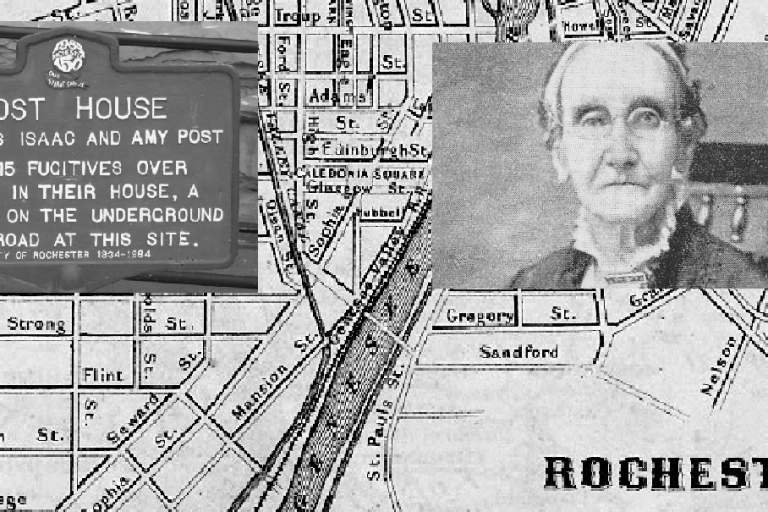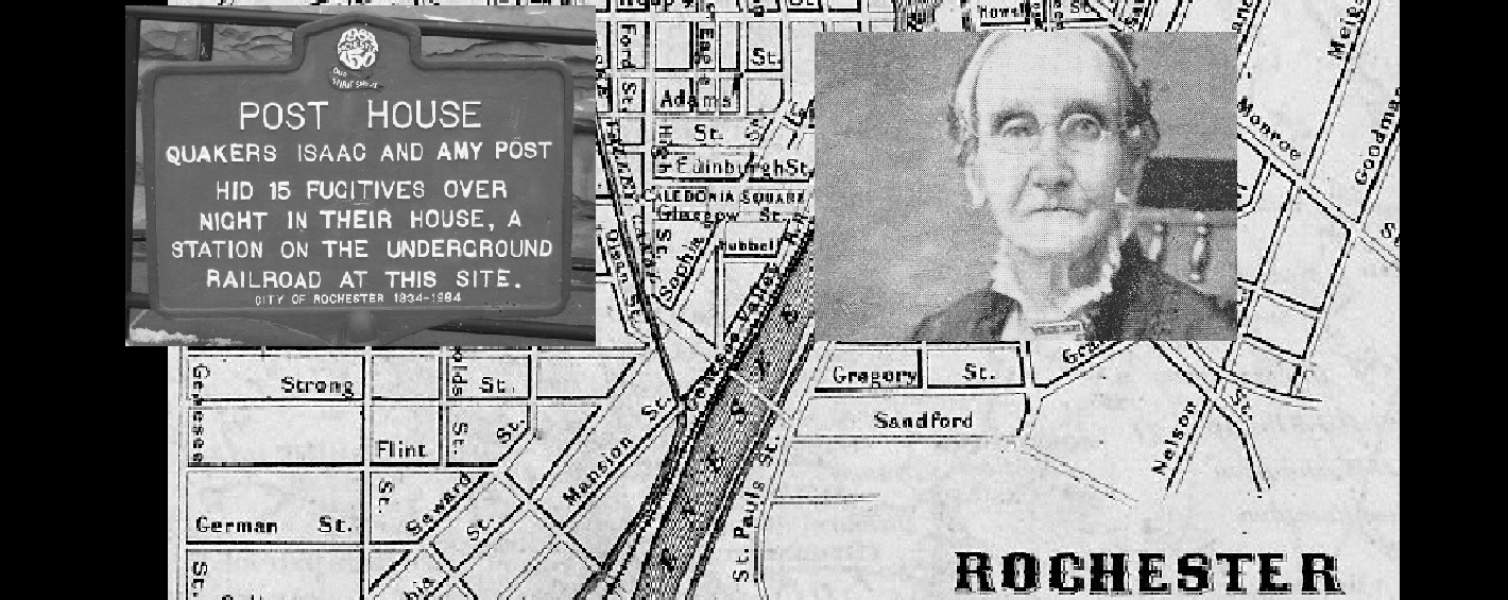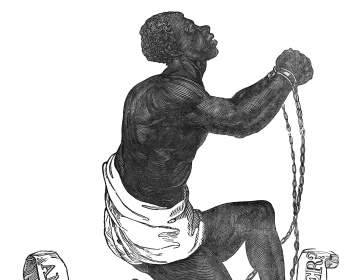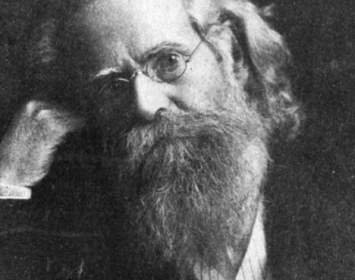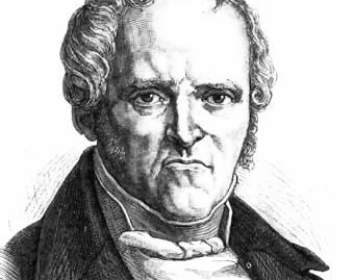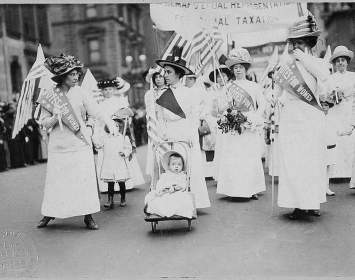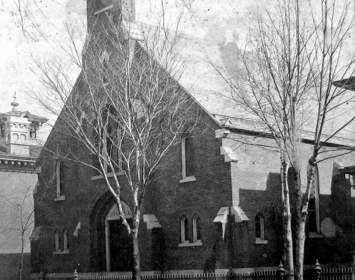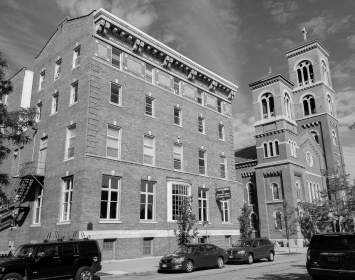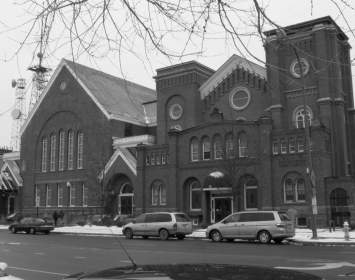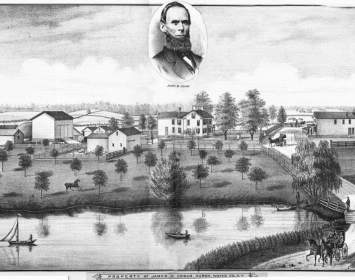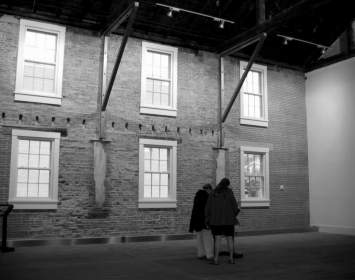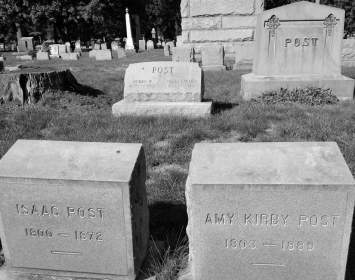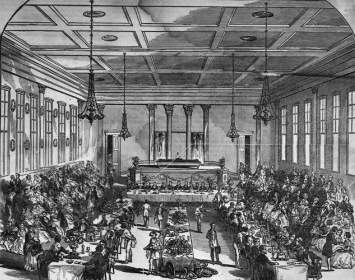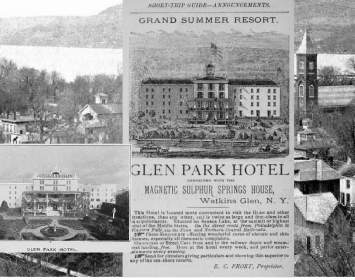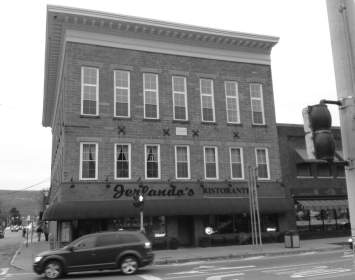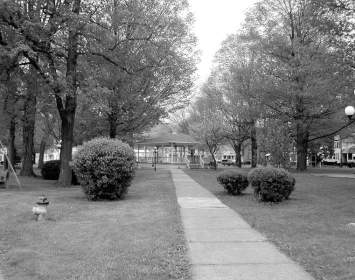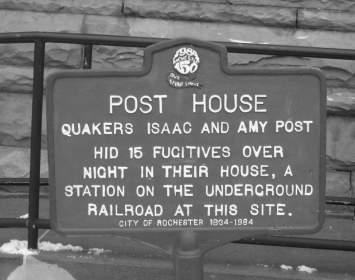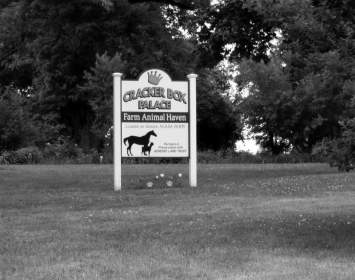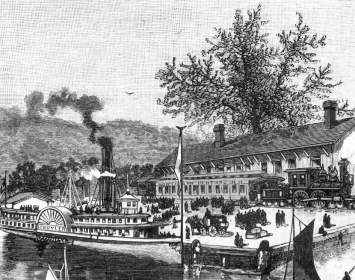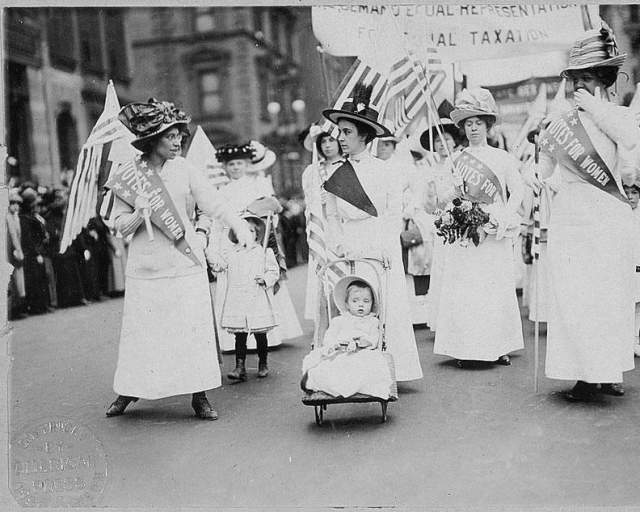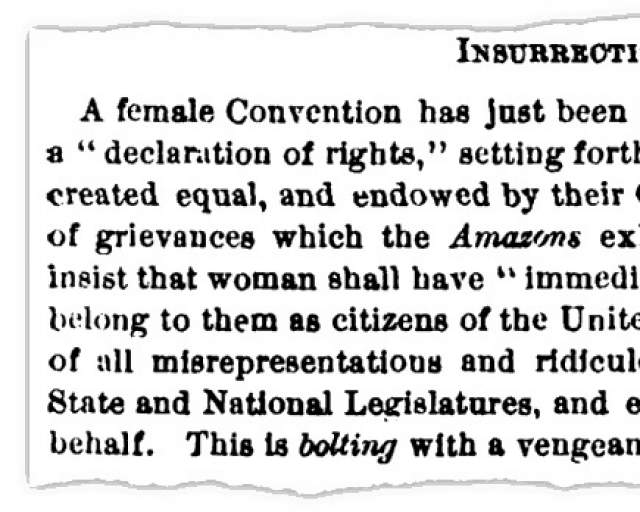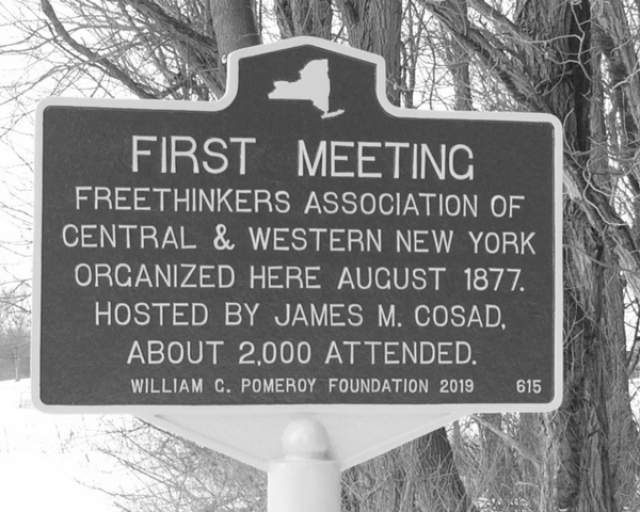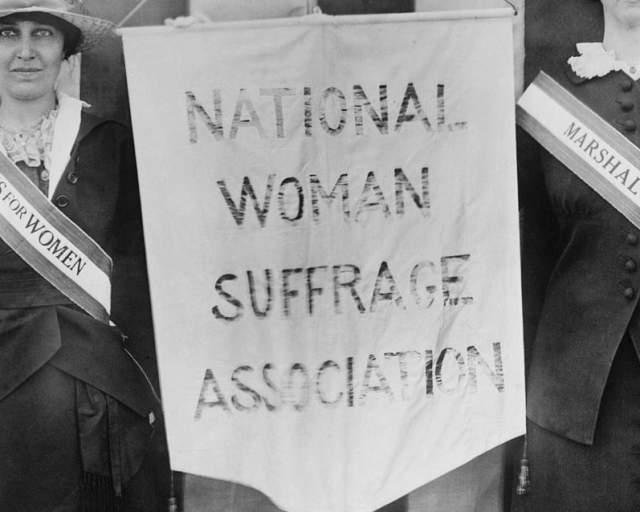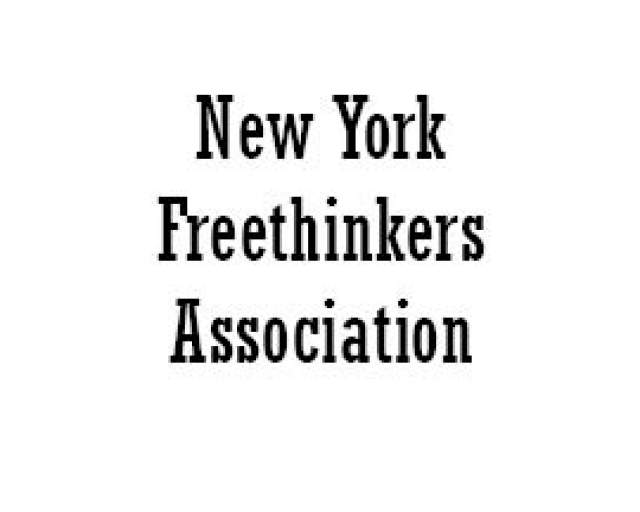
Amy Kirby Post (1802–1889) was not a freethinker (a disbeliever in religion). But she was surely a free thinker, unafraid to follow her reason and her moral sense wherever they might lead her. She and her husband, the successful druggist Isaac Post (1798-1872), were Hicksite Quakers. The Hicksites had split from “orthodox” Quaker congregations in 1826 over issues ranging from doctrine to slavery. Elias Hicks, founder of the Hicksite sect, was a cousin of Amy's. The sect became a great epicenter of abolition activism. In time Amy and Isaac would be judged too radical to remain even among the Hicksites for their fervent advocacy of reform causes including abolition and woman's suffrage. (Nineteenth-century practice was to use the singular, woman's, when referring to women as a class; later practice was to use the plural, women's).
In 1842, the Posts were among the cofounders of the Western New York Anti-Slavery Society, which counted Quakers and other among its members. This was considered radical by most Quakers, who tended to view any involvements with non-Quakers as "worldly." The Posts opened their home at 36 Sophia Street (now Plymouth Avenue North) in Rochester to radical abolitionist meetings; Frederick Douglass, William Lloyd Garrison, and Sojourner Truth spoke there, as did Susan B. Anthony, who was both an abolitionist and a principal leader of the woman’s rights movement. The Posts’ home also became an important station on the Underground Railroad.
In 1844, Amy and Isaac Post were listed as nonresident members of the Sodus Bay Phalanx, which was led by the Hicksite Quaker Benjamin Fish. It is not known how deeply the Posts were involved with this Fourierist Utopian commune on Sodus Bay; they never became Phalanx residents. Like most such intentional communities, the Sodus Bay Phalanx collapsed in about two years, in part a casualty of disagreements between its liberal-religious and its freethinking members over issues ranging from food choices to whether to allow field work on the Sabbath.
In 1847, Amy Post played an instrumental role in persuading Frederick Douglass to come to Rochester, where he published antislavery periodicals, including the famous North Star, and spent what he would later call the most productive quarter-century of his life.
In 1848 the Posts were driven out of the Genesee Yearly Meeting of Hicksite Friends on grounds that they were too radical and too involved in "worldly" campaigning. Specifically, they were censured for taking part in antislavery activities that involved non-Quakers.The Posts immediately helped to form the Waterloo Yearly Meeting of Congregational Friends, an ultra-radical Quaker denomination devoted to the immediate abolition of slavery, complete sexual and racial equality, and egalitarianism (the group had no elders, vesting equal authority in each member). Among the members of this sect was Daniel Anthony, father of Susan B. Anthony.
Also in 1848, Amy Post and her stepdaughter Mary Post attended the first Woman’s Rights Convention in Seneca Falls. They were among one hundred women to sign the convention’s most significant product, the Declaration of Sentiments.
The Posts were early converts to the fraudulent "religion" of Spiritualism. Again in that eventful year of 1848, the Posts welcomed into their home the self-styled "mediums" Kate and Margaret Fox, whose pretended communication with spirits by means of rapping noises launched the Spiritualist phenomenon. The Fox sisters made several converts among the Post’s radical friends, including Isaac himself, who became a medium and in 1852 wrote Voices from the Spirit World, a classic Spiritualist text.
Yet Amy Post maintained a continuing involvement in the freethought movement. This was not as unusual as it sounds; in the later nineteenth century there was substantial cross-fertilization between freethought, radical Quakerism, and Spiritualism. All three shared a stance of opposition to the powerful Christian consensus of the day; all three contributed more than their share of supporters to the abolition and woman’s rights causes.
In July 1878, Amy Post attended a Convention of the National Woman Suffrage Association in Rochester. She saw to the arrangements for a well-attended evening lecture session aimed toward the general public held at Rochester's Corinthian Hall. In August of that year she addressed the Convention of the New York Freethinkers Association in Watkins Glen. There, freethought journalist D. M. Bennett, Boston freethinker W. S. Bell, and sex radical Josephine Tilton were arrested for selling a marriage reform/birth control tract; Amy Post paid bail for Bennett and Bell.
Amy Post died in 1889. She is buried alongside her husband Isaac in Rochester’s Mount Hope Cemetery, not far from the grave of Frederick Douglass.
Like Peterboro-based abolitionist/philanthropist Gerrit Smith, Amy Post never embraced irreligion. Yet both Post and Smith embody the commitment to radical reform and eclectic enthusiasm for human-rights causes that define the Freethought Trail.
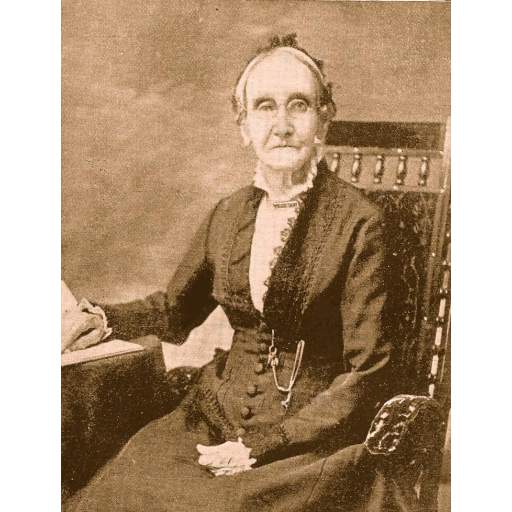
Amy Post
Amy Post (1802-1889).
Associated Sites
Associated Historical Events
Woman's Rights Convention at Seneca Falls
July 19–20, 1848
Follow-On Woman's Rights Convention
August 2, 1848
1878 Woman's Rights Convention
July 19, 1878
Sixth New York Freethinkers' Association Convention
August 23–27, 1882
